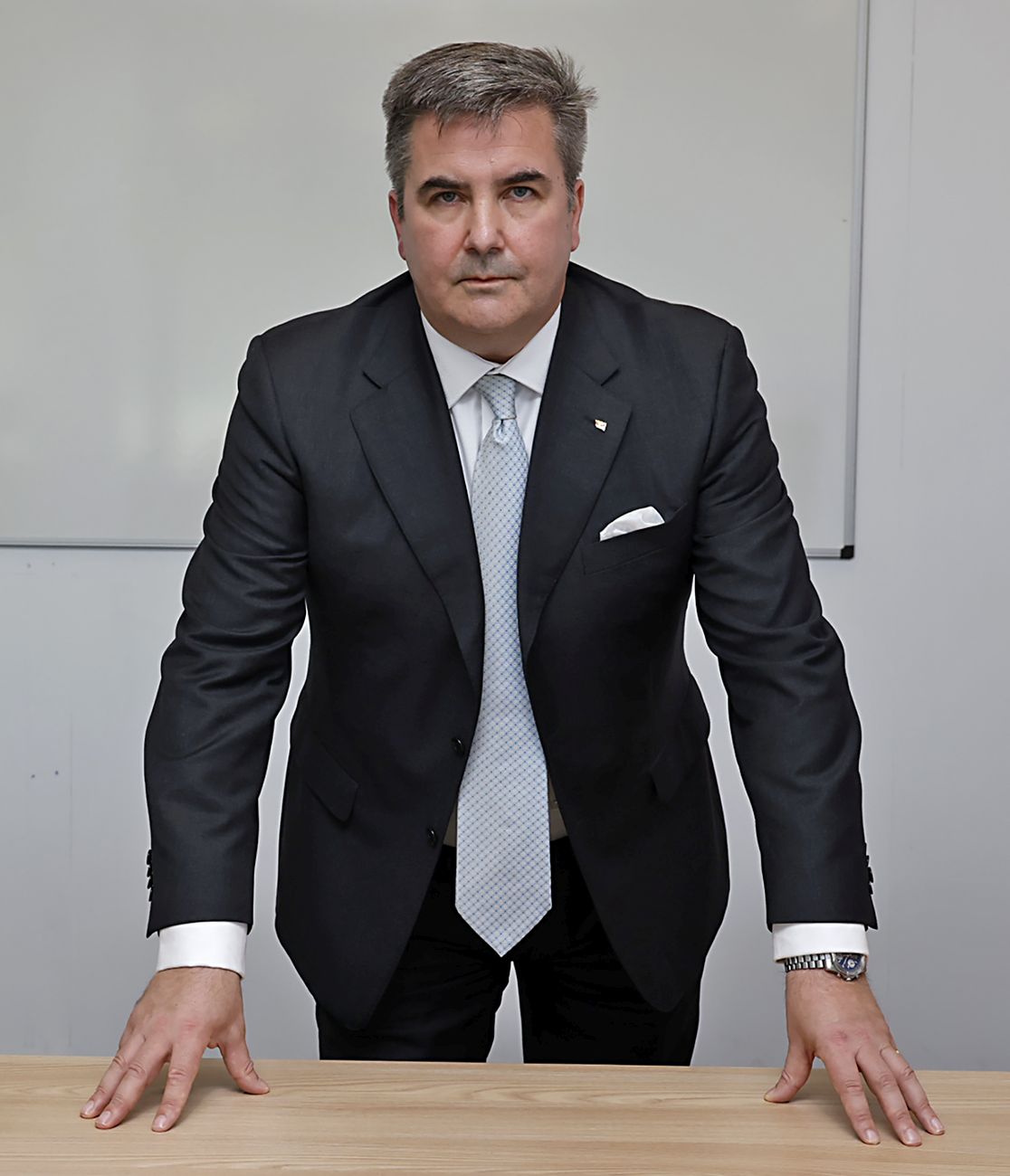Archives
Feature, Freight News, Sea
We had no choice, says P&O Ferries chief
[ April 11, 2022 // Chris ]There was no alternative to the difficult decision to sack almost 800 P&O Ferries seafarers, said the company’s chief executive, Peter Hebblethwaite.
Without the controversial move on 17 March, the company would have gone out of business, he told FBJ in an exclusive interview on 11 April.
“The company was wildly uncompetitive,” he said. “It’s not something that could have been change with a little tweaking. It had to fundamentally change,” he said.
Before it made its move to sack crews, remove them from its vessels and replace them with agency staff, P&O Ferries was using an unsustainable average of over four crews per vessel on the Dover-Calais route, he said. The new arrangements mean that there an average of just two crews per vessel, who are moreover only paid for when they are working. This will bring the company’s cost structure into line with s competitors on the Channel, and North and Irish seas, said Mr Hebblethwaite.
P&O Ferries had been a business in decline for many years and had reached the point where a hard decision had to be made, he continued. “We had to look at what we do and our operating model,” he explained, adding: “I have said repeatedly how sorry I am on a personal and professional level that we had to sack 800 of our colleagues, but we had to face reality. We have not been able to pay our own bills for a number of years. The business was simply not viable, so we had to look at the core of what we do and our operating model.”
He added: “We did look at every option, and all roads led to closing the business down.”
As for the decision not to consult with staff, which has been widely criticised in the media and by politicians, Mr Hebblethwaite argued that the cost of doing so would have run into hundreds of millions. While companies that failed to consult with staff on redundancies were required to pay compensation amounting to 13 weeks’ pay, P&O Ferries had fulfilled its obligations in this respect with the payments made to the redundant workers.
Time was not on the management’s side, he said: “We didn’t have ten years in which to do this. We couldn’t expect our shareholder to unconditionally fund us with no commitment to change.”
He said that parent company DP World had put £2bn into the UK, had never drawn a dividend from P&O Ferries and its relationship with the operator was purely as a shareholder. Asking it for financial help would have been “absolutely not the appropriate way to proceed”.
But with a painful episode in its history behind it, P&O Ferries would be able to look forward to the future, Mr Hebblethwaite pointed out: “What we now have is a business that is viable and has a high level of flexibility. It will be able to match customer needs in a way that it has never been able to in the past. It will be modern, dynamic and competitive in a way it has not been in decades. We’re not doing this to become a slightly different version of what we were before.”
He described P&O Ferries as “a sleeping giant”. While it has some impressive ships, and with new dual fuel ferries on order, in other respects it had failed to match competitors such as DFDS and Irish Ferries that had already trimmed their costs, to say nothing of the Channel Tunnel with its frequent freight shuttles –although the existing space-sharing agreement with DFDS already gives a ferry from Dover every 35 minutes.
While freight customers have been forced to find alternatives while P&O Ferries services have been suspended, Mr Hebblethwaite was optimistic that they could be enticed back again with new improved services. However, he would not be drawn on where and whether P&O Ferries would increase frequencies or open up new routes.
At the time of going to press, a P&O Ferries spokesman said he was optimistic that the Dover-Calais route would resume in the week beginning 11 April, depending on a favourable report from the regulators. The European Causeway had already returned to the Larne/Cairnryan route and the Hull Rotterdam route has already restarted. The Tilbury/Zeebrugge freight service had also continued to operate during the shut-down of the passenger services.

Tags: P&O Ferries












